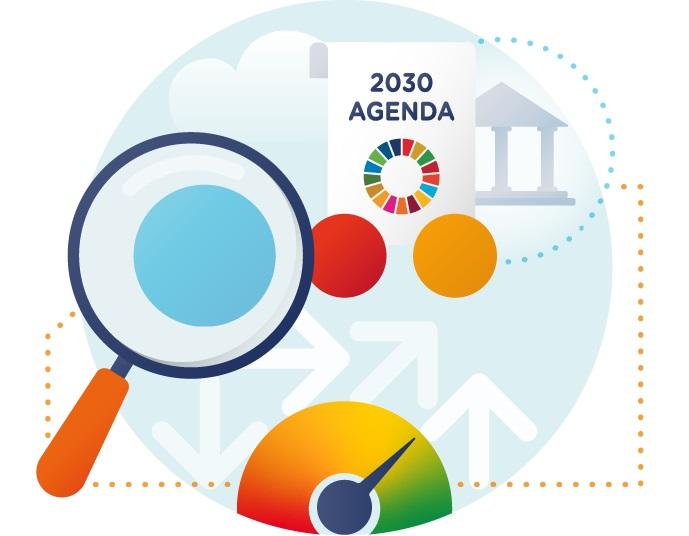
Three new JRC reports highlight the experiences of the first European local governments that measured the achievement of the 2030 Agenda for Sustainable Development and its Sustainable Development Goals (SDGs).
Insights from the experiences of cities and regions that committed to a better future show that is possible to speed up actions and progress using an evidence-based approach and reliable data.
On 16 June, the JRC launches three reports prepared by international experts on the localisation of the Sustainable Development Goals (SDGs) in European cities and regions. The reports are published in the framework of a JRC project that aims at supporting local governments. The SDGs, the set of goals agreed by the international community in 2015, aim at promoting an integrated approach to sustainable development at all territorial levels.
Which local indicators do European cities use to measure the SDGs?
The first report presents a detailed analysis of the approach that European cities have used to monitor the SDGs. It also shows how European cities have managed the processes of indicator definition and selection, as well as the sourcing of relevant data of their indicators. It reviews the state of the art of the different frameworks of indicators in different European countries. It highlights which local indicators proposed in the first edition of the ‘European Handbook for SDG Voluntary Local Reviews’, published by the JRC in 2020, are used by European cities.
How regions use the SDG monitoring to boost sustainable development?
The second report describes the various actions and initiatives developed in the Basque Region for the local implementation of the 2030 Agenda, which constitutes a pioneering exercise on the establishment of what this report defines as an ‘SDG ecosystem’. From this experience, the report draws recommendations useful for other regional authorities.
The third report proposes a number of indicators aimed at facilitating the work of European regional governments that want to monitor the SDGs, starting from the work done by the JRC but expanding the analysis to three case studies: the Basque Country and Navarre in Spain, and Flanders in Belgium.
A common language for common goals
Despite the differences in approaches and data, the three reports reinforce the idea that the 2030 Agenda and the SDGs allow countries, regions and cities to speak a "common language". The three authors, in collaboration with JRC scientists, have explored dozens of European indicators databases and official documents to provide an accurate overview of the experiences of local governments to measure sustainability in a coherent way. More than 45 experts from local administrations and universities were interviewed in the preparation of these reports.
Further information
European SDG Voluntary Local Reviews: A comparative analysis of local indicators and data
SDG localisation and multi-level governance: lessons from the Basque Country
Regional indicators for the Sustainable Development Goals
European Handbook for SDG Voluntary Local Reviews
Related Content
Publications:
European SDG Voluntary Local Reviews: A comparative analysis of local indicators and data
SDG localisation and multi-level governance: lessons from the Basque Country
Details
- Publication date
- 9 June 2021
